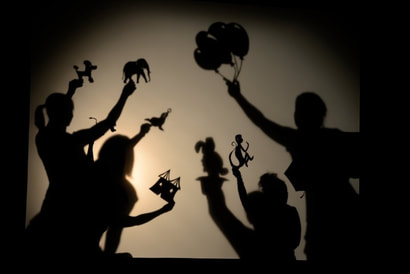 The recent idea of "men's therapy" is based on the idea that men face different challenges, and respond to their environment in different ways from women. This idea certainly has some validity: men suffer different levels of anxiety and depression from women, for example. Men also experience different expectations in their lives. Did you know? Suicide is over three times more likely in men than women in Ontario. Rumours that men generally speak less than women are unfounded. According to the research, there is no appreciable difference. However, more important than quantity of communication is quality, and it is here that men traditionally struggle. Men often lack a healthy relationship with their emotions, including a lack of language to accurately describe or express them, and the means to understand the meaning of the feelings they have. Some common issues affecting men:
In therapy, I find that most men want someone "normal" that they can speak to. Someone who won't judge, who can help them make sense of things. Someone who can speak their language, and help them get to solid ground. The issues affecting men are actually not distinct from those affecting women, but the expression of those issues may be. Many men carry a cultural belief that they have to work everything out on their own; it often takes an act of courage to simply admit that reaching out can help.
0 Comments
 This week, I came across an "ism" that surprised me. The word I found was "sanism" - the prejudice and discrimination against those who suffer from mental illness. Why hadn't I heard this word before, I thought? After all, I'm a psychotherapist, and the ill-treatment of those who are suffering in the sphere of mental health is hardly foreign territory. The discovery of this word prompted me to wonder whether a kind of fatigue has set into society. Marginalized groups across the spectrum of human experience are competing hard to have their voices heard. Culture wars are setting social media on fire on a daily basis, and the news is filled with horrors. Perhaps, I thought, there's only so much space on our moral radars for isms, and "sanism" just hadn't quite made the cut, yet. Disparate marginalized groups, though often sympathizing with the struggles they see elsewhere, spend most of their energy fighting their own particular corner. This siloed approach has made some notable gains over time, but is this fractured approach the most effective, or even the most realistic one? Beneath the surface, the majority of these groups are attempting to overcome the same subterranean foe: othering. Q: What is othering? A: To view or treat another person or group in a reductive manner, and as intrinsically different from, and inferior to, the self (or group-self). Othering makes use of projection to denigrate outsiders and scapegoats, thereby contributing to group cohesion and conformity. Othering is also closely associated with narcissism: a narcissistic group or individual will unconsciously regard others as things or uses that either contribute to narcissistic supply, or threaten the narcissist's hidden fragility. As the word suggests, another defining characteristic of othering is an exaggeration and concentration upon difference, rather than what is held in common (our sameness). The psychological mechanism of othering includes a drastic departure from the reality that we are all, in truth, very similar. There is undoubtedly a very human irony present in the world when so many of the othered cannot themselves acknowledge the qualities they have in common. The result is a fractured resistance to a universal, deeply-rooted and ancient human trait.  We are tribal creatures. For thousands of years, human beings have depended upon living in groups in order to survive. When we exist successfully with other people, we gain a deep sense of belonging that is fundamental to human wellbeing. When we gain true acceptance, we don't have to compulsively seek attention. We can just be. This kind of belonging is becoming rather scarce. Whether real or virtual, modern groups increasingly tend to reward a part or aspect of us that is useful, rather than our true selves. We anxiously don masks (personas) in order to fit into groups that demand such high levels of conformity that we sense our true selves are actually unwelcome. Instead of belonging, in our modern world, we are witnessing an epidemic of loneliness, anxiety, depression and attention-seeking. When we seek help however, people are frequently asked to believe that there is a fault with them for the existence of these feelings, and are told to "take a pill" to mask, "correct" or numb themselves before being sent back into an unchanged environment. There are glaring problems with this model. It determines that we are at fault for feeling ill at ease with the world we live in, and that only by correcting our biology can we hope to feel better. Moreover, the suggestion is that the environments we find ourselves in are benign. This is dangerous, profitable, and ill-considered thinking that ignores the role of environment in our wellbeing. When we're asked to believe that our anxiety, loneliness and depression have no meaning, other than an indication of our own faulty biology, we're in deep societal trouble! There are a great many people these days, desperate for a sense of belonging, feverishly hunting, in one way or another, what can only truly be given. Precious time is given over to the chase for hits of admiration, where belonging is so elusive. In this needy constuct, other people can quickly become things that either admire or disappoint us. In other words, they can become reduced to objects in a desperate game to remain afloat.  Current events in our culture or family lives can lead many of us to raise our hands in despair, and ask: "Why do (other!) people never learn?" Things can seem so bad, on so many fronts that we can feel overwhelmed and powerless. This article is intended to highlight a connection between prevailing problems we encounter in apparently unrelated areas of life: the problem of objectification. Human beings are able to imbue objects and animals with human characteristics. This act is known as "anthropomorphism", and it happens all the time. Look no further than children animating stuffed toys, or Disney's success for examples of how we can do this. Without so much as a blink, we are also able to engage the far more dangerous opposite: we can perceive people as objects in a psychological act we refer to as "objectification". For the purposes of this discussion, I'm going to use a concept that Carl Jung borrowed from William James: the concept of "nothing but". When we describe, or view another person, or ourselves, as "nothing but x", we have objectified, because even if x is an idea, we have still reduced a subject to a static idea, from which they cannot easily escape. Whether we reduce people to an actual object, or to a concept doesn't matter. If we say that our neighbour is "nothing but" a snowflake, a banker, or a pain in the neck, we have in our mind objectified them. "Nothing but" is a magic trick that affords us great power. We can, for example, stand on a hill, looking out over a forest, and reduce its value to a series of numbers or characters on a spreadsheet. It is nothing but timber, and profit. Similarly, we can look in the mirror, or across at our neighbours from a different perceived tribe, and pronounce ourselves or them, "nothing but". "Nothing but" is the feeling when we're shouted at in a road-rage incident, or when we try to phone a company, and are told our "call is very important, please hold", when we know that is not the case. In the act of objectification, life-forms effectively become dead to us, objects with which we can do what we like. Subjects become objects because objects can be used by us, and can defined by their utility alone. If we're not certain whether we're objectifying others, or vice versa, a good measuring stick is this question of use: to what extent are we using, or being used? This is not necessarily a binary issue, but we use objects, not people. Things we use don't require respect; they just need to fulfill a need for us consistently. So, a good boss will wish his employees well for their own sake, and an objectifying boss will merely want his employees to perform a function optimally, by whatever means necessary and without empathy. People, in his eyes are in essence, faulty robots. Similarly, lovers may decide to use one another to satisfy needs and desires, or in the example of unipolar objectification, an individual may nefariously try to utilize another for his, or her own ends. By constrast, as two subjects, priority is given to of the wellbeing of the other person, each of whom demands, and receives, respect. The correlation between objectification and utility is also high in the case of the scapegoat; another instance in which a subject becomes an object in our minds. The scapegoat, above all, is useful, since they provide a cowardly route for the projection of in-group evils onto a vulnerable other. By doing so, the in-group gains both a sense of cohesion (because it can define itself as all-good) and a sense of power, because it has overcome ambiguity, albeit through an act of magical thinking. The scapegoat is labelled and conjured into an object, which may be treated any way we like, since objects are not like us. Objects rather, are things we use, and scapegoats are useful to us in the most Machiavellian way. Sadly, this occurrence is common to a great many groups, including families. In the act of scapegoating, we turn subjects into objects without a moment's thought. To fully accept that another, valid subjectivity exists requires the abilitiy and will to give psychological space and time to that subject. One has to listen, without interrupting, and to engage with curiosity and empathy. On a crowded street, this is not possible, nor desirable; to do so might be overwhelming. We are, however, able to accept, even in large groups, that other people are in large part a mystery to us. When we objectify, we remove our respect for the mystery of another subject, and put a label, number, or use in its place. Human beings are so susceptible to objectifying others that we need instruments of culture to rein in our worst impulses. Instutitions of the law are imperfect, but punish and prevent such things as violence and child neglect, and therefore often dissuade objectification. We are reminded by the law to rein in anger, to avoid drunk-driving, and not to defraud others. One might argue that the law is meant to remind us to respect one another as subjects. Major insitutions, like the United Nations are meant to dissuade one nation or ethnicity from treating another like a thing to be manipulated or abused at will. Concurrently, we experience through culture, things that persuade us to objectify. Instruments of self-interest are the most obvious examples. Commerce itself is an extension, in which nature and people can easily become objects to be exploited, manipulated or made use of. People can become subservient to the balance sheet in slavery, and all manner of other abuses of the human "resource". Mathematics often enables this process since it is an abstraction, that pretend to represent the real world, but actually only represents certain, chosen aspects of it. As such, it provides a stepping stone towards the "nothing but" that denies the richness of subjective experience. A series of numbers can sum up neither a forest nor a human individual. Kant, in Lectures on Ethics, discussed how sex in his opinion, is inherently objectifying, and therefore inherently problematic. Marriage, he thought, was the only institution that could save us from peril, because only there could our subjectivity be reliably returned to us. Carl Jung approached the problem of objectification too, decrying rational materialism that could result in a psyche being treated as mere "chemical secretions of the brain". These writers were concerned that humanity could be reduced in a systematic fashion. Through objectification we can become subservient to, or equivalent in perception to, numbers written on pieces of paper, to algorithms, to use or base materials. I sometimes think of psychotherapy as a space designed for subjectification: a safe place, where the objectified self that so many of us carry can be expressed, and integrated through exploratory, non-judgmental conversation. When this happens, we can move from meaninglessness, anxiety, panic and low self-esteem, to a sense of meaning, calm, dignity and self-respect. Therapy is also a place where we learn our blindspots; when we turn tables without noticing, and objectify the other. As a therapist, is common to meet with people who, when children, knew neglect, or who felt like they were nothing but a flat character in a more powerful person's story. Growing up in the shadow of narcissistic parenting means growing up as an object, and not receiving the respect that a growing human being requires to develop a healthy psyche. Sadly, there are people, systems and institutions that objectify others routinely, or in a heartbeat treat others according to how useful they perceive them to be. Objectification can be handed down, generation to generation, creating cycles of destruction. But in the course of a life, surrounding oneself with objects is the very definition of loneliness, and is fraught with disrespect to oneself and others. It is hard to imagine a more devastating aspect of humanity than our predeliction for treating subjects as objects. When dealing with the magnitude of problems that affect us as individuals, it is sometimes helpful to leave our silos. When we do so, we can see that the problem of objectification, which can feel so personal, has left a trail of destruction elsewhere, in a terribly broad swathe of human life. Our fight to contain the impulse to objectify is actually a common one, shared between disparate and opposing groups. The brighter the light that is shone upon this aspect of our psychology, the greater the chance we have of reining it in. Through a variety of means, we can then reduce its destructive potential, and promote what really matters: nature, and human being. By : Tom Barwell Any quick search online will give you a variety of answers. Broadly, there are two main schools of thought:
In my practice, I find a consistent theme with those who suffer from depression - for the majority of people, along the lines of the second statement. Depression is a feeling we get when a vital aim seems impossible to achieve. For example, I regularly meet depressed people who are:
In therapy, we come to terms with our past, our present, and our emotions. We work together to look problems in the eye, so that, ultimately, we may gain back precious momentum. The truth is that we usually can find our way back into the world. We usually can begin to change our potential into reality. But even the smartest people get stuck when they try to do it all alone. Depression can be frightening and disorienting, but you might be surprised at the results when, in conjuction with a therapist, you're able to look beyond the sense of being a victim of a faulty biological make-up. Indeed, for many people, the idea that we are somehow in the midst of an "epidemic" in which human beings, so highly evolved in so many ways, are suddenly biologically misfiring without environmental cause, is highly problematic. Rather than looking along the lines of "disease" to explain depression, I am more inclined to view most sufferers in terms of health. The person who, for example, has been cheated on in a relationship may feel depressive feelings. But, the person who believes that no relationships can be trusted is likely to experience depression. Likewise, the person who experiences anxiety and stress at work for a week is likely to experience depressive feelings, but the person who sees no opportunity to find meaningful work is likely to become depressed. Again, the person who's confidence has taken a knock might feel low for a time, but the person who has chronically low self-esteem and cannot exert their will (or does not know what it is), long term will be vulnerable to depression. The idea that a doctor, within a 15 minute window, can know anything about your individual "brain chemistry" lacks both evidential and intellectual rigour. But this is exactly what happens: drugs are being routinely prescribed to "correct" the chemistry of those who are suffering from depression. All the while, it is common for no questions at all to be asked about the patient's life, and the difficulties that particular individual might be experiencing. One cannot help but think that the current situation is exascerbated by the immense marketing and lobbying dollars of the pharmaceutical industry, which relies upon a dubious formulation of "chemical determinism" for its dominance. But doctors themselves must take some responsibility in the spreading of such dubious ideas. After all, the Hippocratic oath makes it encumbent upon doctors to apply ethical rigour when any person walks into their office. When a person puts forward the argument that "chemical imbalance" causes depression, they are actually making an assumption: that the brain (which has "chemicals") affects mind (which feels depression). This is a fallacy based upon dualistic (Cartesian) thinking: "mind" and "brain" in fact are essentially the same thing, viewed through different lenses, so saying that "brain" affects "mind" is a skewed picture. One might just as easily say "mind" (feelings) affects "body/brain" (chemicals) - which of course, it does, if we follow the same faulty logic. If you watch your favourite sports team, just like a roller-coaster, your adrenaline and cortisol may rise and fall. If you win the lottery, or a promotion, you can bet your brain chemicals change. In fact, we know through the study of neuroplasticity that the brain is always changing, and always reorganising itself. It's easy to swallow the "chemical materialist" view. But, we are not just chemicals. We are beings with intent, and when our most important intentions feel unachievable, our bodies often speak in the language of depressive feelings. It is as if we are living in a dark, invisible box, and we cannot get out. Most people who come into my office have not been afflicted with anything that might realistically be called a "disease". Their emotions are talking a language that can be hard to understand, but it is certainly understandable for most people: it is the language of depression. My job as a therapist is to help both of us understand what is being said. A worrying end note: in my definition, depression is strongly related to inertia. If we try to eliminate the feeling of inertia (depression) by the use of drugs, how does this affect the amount of energy directed at the improvement of our environments? If, for example, an office executive is depressed, do we treat the isolated individual as sick, or do we listen to them, and wonder whether something needs to be changed in the office? Do we give her pills, or address the rampant sexism that's affecting her? Do we give him pills, or address the racism that's holding him back? Do we address the introvert with anxiety, or address the open-plan office environment? Above all, do we treat people as sick, or insist on giving them opportunities for empowerment and advancement in the knowledge this will help their mental health? Where do we lay the emphasis, where is the problem and the confidence? Clearly there are plenty of people on anti-depressants who are making positive change happen in the world, but the conclusion remains that there might be more energy devoted to change if we learned our own secret language, and found ways to encourage self-esteem, communication, creativity, determination and momentum. Aren't these some of the core, growth-associated qualities that companies struggle, but need to encourage in their people? My answer to the question in the title of this article is that we do not ever truly beat depressive feelings, but we do have a choice: we can try to numb them out, or we can learn what they are trying to teach us. Believe it or not, depressive feelings can become a powerful guide to our growth and future advancement.  This is the phrase I sometimes have in my mind when I think about my practice, and about therapy in general. It doesn't describe everyone who comes to therapy, but both the incidence and the suffering involved are considerable. It is deeply instructive to me that so many people facing struggles in life have suffered at the hands of narcissistic parents, and many people bear the tell-tale deep, invisible bruises of what often amounts to a form of emotional (and sometimes physical) abuse. I thought it might be helpful to outline a few of the dynamics of growing up and living with narcisisstic people: 1. When we grow up, we need to be known, seen, heard, reflected and accepted. Sadly, children of narcissists are forced to know, see, reflect and hear their parents instead. They learn that their own selves are not welcome, and what is inside them is not acceptable. 2. Children of narcissists must serve. They serve another's needs and emotional states. They "parent" their parents, or are regarded as a nuisance. Either they fit into serving the narcissist's ego, or they become "black sheep", forever punished, demeaned and forgotten. 3. Children of narcissists live confusing lives. If they are angry or upset, this is perceived as an attack on the parent. If they pursue an interest or point of view that is different from the parent, they are diminished, ridiculed, "frozen out" or punished. 4. Not surprisingly, children of narcissists can grow depressed. Their every attempt at being loved and acknowledged for who they truly are is met by something that feels false, rejecting or humiliating. Becoming deflated and exhausted internally is natural, but can set itself up as a pattern long into adult life. 5. Like the giving and receiving of gifts, conversation requires a two-way interaction. Children of narcissists have grown up around a skewed communication in which the desire for true exchange is frustrated. Learning to talk, gradually, from the inner self with someone capable of receiving that self is part of the work of therapy. Naming and reclaiming emotions, ideas and a greater sense of selfhood takes time, but a more reliable, solid, vital and creative person can emerge. Therapy is not top-down expertise; it is bottom-up. We are there to help you grow, to listen acutely, to guide you in exploration and to help you come to know your self in ways you've never been able to. But therapy goes beyond knowledge. We are there to help you claim and re-claim your self. This can sometimes feel like hard work, but it can also feel deeply liberating, exciting and rewarding. In my experience, given time, it is eminently possible to recover what is rightfully yours. |
Tom BarwellPsychotherapist, working in private practice online Archives
July 2023
Categories
All
|
 RSS Feed
RSS Feed